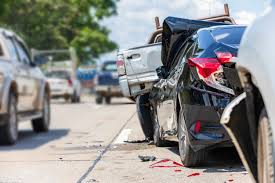
Did you know that there are close to a quarter-million car crashes in Florida each year? It doesn’t matter if you caused the collision or if you were a victim due to the other party’s fault; the damage is to both. It is important that you know the car accident laws and your legal rights and responsibilities as a law-abiding citizen, in both cases. However, the good news is that you are entitled to compensation if the accident happened was due to someone else’s reckless driving.
Here are some essential tips that will tell you what you need to do in case of a car accident:
What to do Right after a Car Crash
The first thing you should not do is to try to slip away from the scene. Driving away as though you are least concerned is a criminal offense, and you are liable to be prosecuted. Act smart, and pull over to the side of the road so that you don’t block the oncoming traffic and help prevent a string of nasty accidents. Check if you or the other person is hurt and call for medical assistance if required.
Gather Vital Information
Don’t forget to exchange details with the other person (the one involved in the accident). Make sure you provide your name and address along with the vehicle registration number and license plate number. Get the same information from the opposite party as well. Remember that you don’t have to know car accident laws to collect this information. It is also essential that you report the accident to the authorities. As per Florida law, you should report any accident where people are injured, and property (car) damage is estimated to be over $500. You must contact the Jacksonville Sheriff’s office or the Florida Highway Patrol.
Look for Evidence
While waiting for help, you should look around for clues that can be used as evidence. It is better to jot down whatever you see or remember about the accident and the site. Take some photos of the crash site and try to talk to witnesses who may still be around. Don’t commit yourself by admitting to anything. It would help if you didn’t speak anything rather than any important information regarding the crash to the opposite party.
Insurance Coverage
Unlike other US states, Florida law dictates that all drivers must have no-fault insurance. Under Florida law, auto insurance coverage has two distinct categories. The first is a liability due to property damage, and the second covers personal injury. It is good to know such basics, although your attorney is the best person to decide the quantum of compensation and stake a claim on your behalf.
Property damage liability (PDL) insurance is the basic type of auto insurance. It covers you and the other occupants in your car (at the time of the accident) against any damages you cause to anyone else’s property (car) while driving (and if you are at fault).
The not so good news is that PDL does notcover damage to your vehicle. Moreover, Florida law does not mandate that you have insurance coverage for your car. However, it is advisable to carry coverage not less than $10,000 in PDL to cover unfortunate accidents.
Should you file a Lawsuit?
Here again, it would be best if you left this question to your attorney to answer. Most attorneys do not charge fees for consultation and would be happy to settle to fight your case on a contingency fee basis. Usually, the fee is based on a mutually agreed percentage of the compensation amount. You should discuss legal fees, the percentage, etc., with your attorney.
Summing it Up
Primarily, it is necessary to establish who is at fault among the two involved parties. Both drivers may be equally at fault, and Florida’s comparative fault law is applicable in such a case. Please be informed that Florida figures among the 13 US states using a “pure” negligence standard, meaning your compensation matches your injury.

